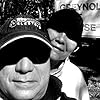David B. Lentz
Tony, thank you for asking this deceptively hard question as, in distinguishing among our books, they are much the same as our children. The most physically demanding novel that I've written is a new one entitled "The Fine Art of Grace." The novel is about a beautiful woman named Grace Lovejoy who is photographing the neglected mosaic art of the New York City Subway for her MFA at Columbia. Her husband, Arthur, is afflicted by the disquiet and is trying to create a new novel. So he agrees to join in Grace's photographic journey throughout the subway system of New York. My wife and I travelled far and wide on foot throughout the subways of New York to photograph the many stunning but almost abandoned mosaics on display almost by default in one of the largest art galleries in the world beneath the streets of New York City. We shot most of the photography during steamy, summer months: it was exhausting and sometimes perilous work as in most cases we photographed from the edge of narrow subway platforms adjacent walls where the mosaics were on display. I'm very pleased with the quality of the color photography inside the book and the drafting process. My most intellectually hard novel to write was "Bloomsday: The Bostoniad," which is the American sequel to James Joyce's "Ulysses." This ungodly ambitious writing project consumed two years of my life and meant reading three translations of Homer's "Odyssey" as well as five readings of Joyce's "Ulysses" to ensure that I tried hard enough to do justice to both masterpieces. Each chapter of "Bloomsday" is written in a different literary genre and I was challenged to find settings, characters and events, which would serve well for this sequel novel set in Boston after the Vietnam War. I even scouted and art directed the photo-shoot on Beacon Hill in Boston with a truly gifted photographer, Ken Ruback from Maryland, on a lovely spring day. If a novel has any literary aspirations of being any good, then the novelist must be prepared to sustain a strong work ethic and even to suffer physically, intellectually and even sacrifice personally through many months of solitude in writing each day away from family and must be willing to make economic sacrifices, as well, until the investment in the creation of the literary novel has time to become realized. The acceptance of literary novels beyond generally more sensitive literary circles like Goodreads usually takes a long time and demands real patience. Real literary novelists -- the truly innovative stylists -- may not outlive the public acceptance of the innovation within their work, which is also difficult after such an investment of Time. Writing is definitely hard work, Tony, and there have been many days when I wouldn't wish its hardships upon my worst enemy. Again, thank you, Tony, for your great question.
More Answered Questions
Saul Escalona
asked
David B. Lentz:
David, I read you review of "The Sun Also Rises ' of H. Hemingway and I found very interesting so I search for this author in Goodreads and went through his books and its ratings numbers. Beside "The old man and the Sea", it looks like that Hemingway is little read by the USA public although being a noble prize and a much renounced author. Any explanation why ?
About Goodreads Q&A
Ask and answer questions about books!
You can pose questions to the Goodreads community with Reader Q&A, or ask your favorite author a question with Ask the Author.
See Featured Authors Answering Questions
Learn more





You are very welcome. Thank you for taking me through your process on your most important projects. I am humbled by the time and effort you put ...more
Nov 22, 2015 07:37AM